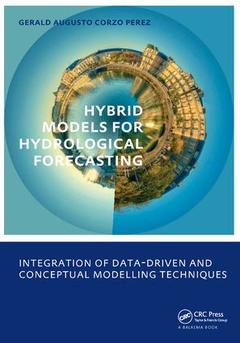Hybrid models for Hydrological Forecasting: integration of data-driven and conceptual modelling techniques UNESCO-IHE PhD Thesis
Auteur : Corzo Perez Gerald Augusto

This book presents the investigation of possibilities and different architectures of integrating hydrological knowledge and conceptual models with data-driven models for the purpose of hydrological flow forecasting. Models resulting from such integration are referred to as hybrid models. The book addresses the following specific topics: A classification of different hybrid modelling approaches in the context of flow forecasting.The methodological development and application of modular models based on clustering and baseflow empirical formulations.The integration of hydrological conceptual models with neural network error corrector models and the use of committee models for daily streamflow forecasting.The application of modular modelling and fuzzy committee models to the problem of downscaling weather information for hydrological forecasting.
The results of this research show the increased forecasting accuracy when modular models, which integrate conceptual and data-driven models, are considered. Committee machine modelling show to be able to manage increased lead time with an acceptable accuracy.
Date de parution : 06-2017
17.4x24.6 cm
Date de parution : 01-2010
Ouvrage de 216 p.
17.4x24.6 cm



